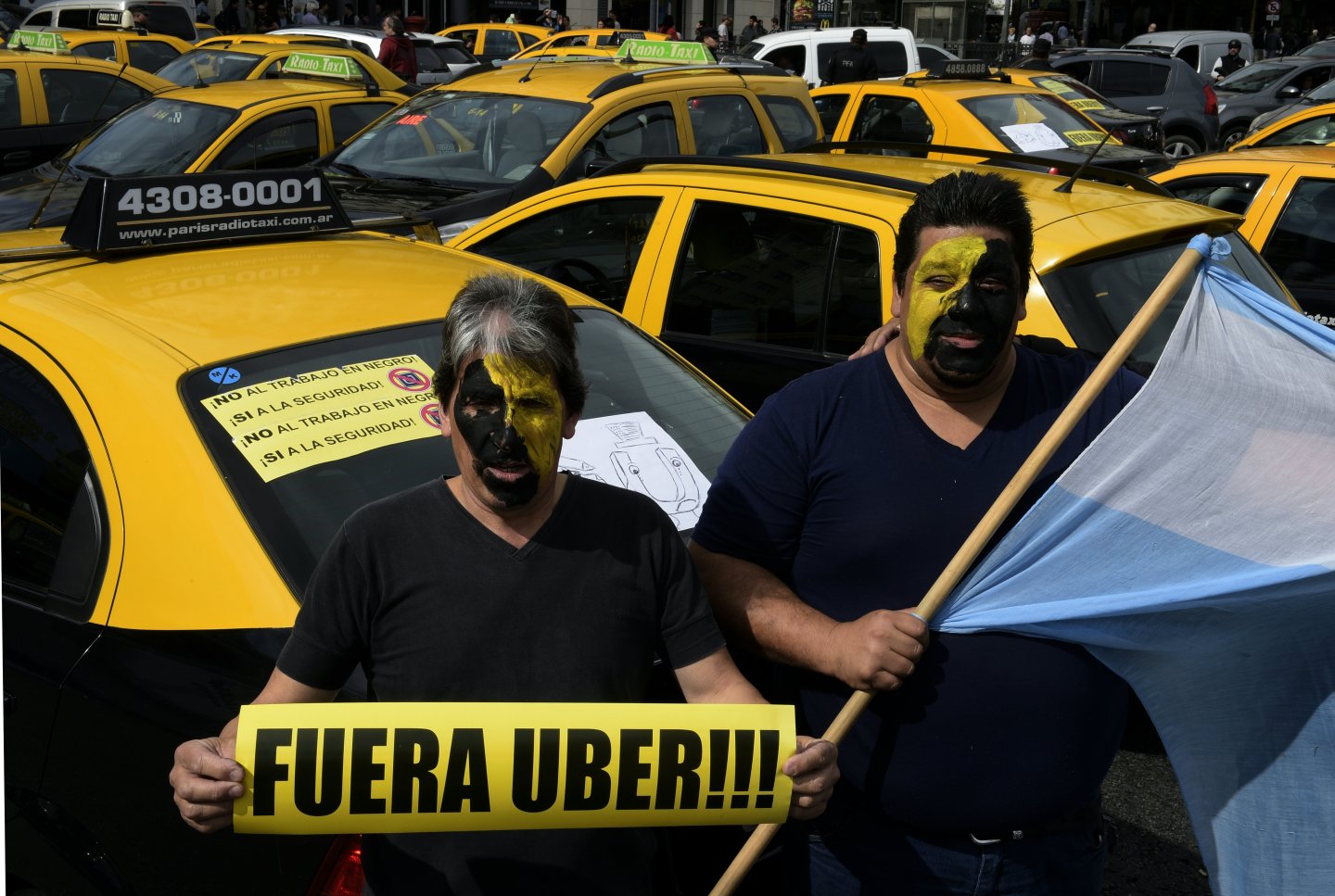Economic researchers from Oxford this week published an analysis of labor data evaluating the impact of Uber on professional drivers in markets it enters. The somewhat surprising conclusion is that the arrival of Uber on average increased employment for both waged taxi drivers and self-employed drivers.
However, the study also confirmed critics’ fears about pay, finding that Uber drove down the earnings of traditionally-employed taxi drivers by as much as 10%. The authors argue that this decline was offset market-wide by the increased earnings of Uber drivers themselves, driven by the Uber app’s efficient matching of drivers with customers.
Overall, the researchers found “little evidence of adverse impacts” on the market for drivers, and questioned the wisdom of efforts to restrict Uber on the grounds of defending workers.
Get Data Sheet, Fortune’s technology newsletter.
The study’s conclusions clash, at least superficially, with other research into Uber’s labor impact. Recent reports have Uber driving down taxi volumes in Los Angeles not by 10%, but nearly 30%. Uber drivers, meanwhile, have often been vocally dissatisfied with their pay, and the company has been fined for exaggerating drivers’ earning potential.
Looking beyond just wages, a recent U.K. government report argued that drivers were overworked and, as independent contractors, asked to shoulder increased financial downside risks compared to taxi drivers. That report, based on interview testimony, may have captured drivers’ subjective experiences more richly, but the current Oxford study drew on a much larger pool of hard statistical data.
Squaring such conflicting conclusions is tricky in part because of the mix of wage-earners and independent contractors, even within traditional taxi services. But many taxi drivers are clearly taking home less pay while working longer hours. Perhaps even more convincing evidence of the negative effects of Uber has been the cratering value of big-city taxi medallions.
One possible explanation of any Uber benefit to taxi drivers, though, would be that the ease of using Uber has increased demand for all driving services by changing consumer habits.
For more on Uber, watch our video.
The Oxford analysis made use of Uber’s gradual expansion in different cities across the United States, correlating that expansion with worker data from the U.S. Census’ American Community Survey. The report found increased driver employment corresponded with Uber’s successive arrival in a variety of different markets, decreasing the likelihood that the changes were driven by factors other than Uber.
The authors compare their findings to other instances where technological efficiencies have actually expanded particular labor forces—the growth in bank tellers that followed the introduction of the ATM, and the increase in gas station employment that came with self-service pumps.
Of course, those are closer parallels to fully autonomous cars than to Uber’s ride-matching app. And it’s hard to imagine, once driverless cars inevitably arrive, how there will be much room at all left for drivers.












